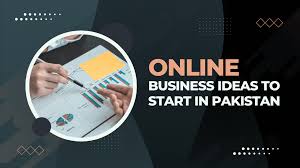Sustainable Business Practices for Startups in Pakistan
Sustainability is no longer just a buzzword; it is a fundamental principle that guides our actions and decisions. It’s a necessity—especially for startups in Pakistan aiming to survive in a competitive and environmentally sensitive market. Whether you’re launching a tech company in Karachi or a fashion brand in Lahore, building a business that minimises environmental impact can give you a potent edge.
This blog will walk you through actionable, realistic, and scalable sustainable business practices every Pakistani startup can implement—without breaking the bank.
Why Sustainability Matters for Startups in Pakistan
Startups face intense pressure to grow quickly, but rapid growth without a sustainability strategy leads to high long-term costs, loss of brand reputation, and missed funding opportunities. As global and local consumers become more eco-conscious, companies that ignore sustainability risk becoming irrelevant.
On the other hand, sustainable businesses:
- Save money through energy efficiency
- Attract eco-aware customers
- Open doors to green investment
- Future-proof their operations against regulatory changes
Top Sustainable Practices for Startups in Pakistan
1. Go Digital First
One of the most straightforward steps is to reduce paper usage by adopting digital solutions. From accounting to marketing, digital tools can help reduce your carbon footprint and operating costs.
If you’re just starting, check out our guide on Digital Marketing Agency Services in Karachi to promote your brand online with zero paper waste.
2. Choose Local and Ethical Suppliers
Avoid importing materials or services when a local, ethical alternative is available. This reduces emissions from transportation and supports the local economy.
Tip: Always verify your suppliers’ labour standards and environmental policies before onboarding them.
3. Use Renewable or Efficient Energy
Switching to solar panels or using energy-efficient appliances can lower monthly utility bills and reduce emissions. Even small efforts, such as installing LED lighting or turning off unused equipment, make a difference.
For tech-based startups, consider energy-efficient hosting solutions. Discover affordable web hosting services in Pakistan that support a greener digital footprint.
4. Minimise Waste in Product Design
Adopt lean manufacturing or product development models. Design products or services that reduce waste in production and packaging.
For example:
- Offer refillable packaging
- Use recyclable materials
- Design products for longer lifespans
5. Promote Remote Work Culture
If your team can work remotely, let them. You’ll reduce office emissions, save energy, and lower your carbon footprint related to travel.
Looking to establish a strong online presence for your remote team? Explore our Website Development Services to create a fully functional virtual brand headquarters.
6. Recycle and Reuse Office Materials
Encourage the reuse of stationery and office supplies. Establish a system for recycling paper, plastic, and electronics.
Additionally, partner with recycling organisations for proper e-waste management—an often ignored yet growing issue in Pakistan.
7. Educate Your Team
Sustainability must be part of your internal culture. Organise monthly training sessions to keep your team aligned with your eco-initiatives.
Utilise visual reminders in your workspace and reward sustainable behaviours to foster long-term habits.
How Sustainable Practices Help Startup Branding
Startups that lead with values often attract loyal customers. By practising sustainability, you’re not just doing good—you’re telling a story. It demonstrates to investors, partners, and consumers that you’re committed to the long term.
Consider promoting your sustainability initiatives through AI-powered content marketing and social channels. Let the world know how your business is making a difference.
Final Thoughts
Building a sustainable startup in Pakistan doesn’t mean compromising on growth. It means being innovative, efficient, and socially responsible from the start. From reducing waste to switching to clean energy and promoting remote work, there are countless ways to go green—without going broke.
Sustainability isn’t just for big corporations. It’s the future of all successful startups.
FAQs
1. What is a sustainable startup?
A sustainable startup integrates eco-friendly, ethical, and resource-efficient practices into its operations, ensuring long-term business and environmental health.
2. Can small startups afford to be sustainable?
Yes! Many sustainable practices, such as going paperless, working remotely, or using energy-efficient devices, actually save money in the long run.
3. How can startups in Pakistan reduce their carbon footprint?
By using local suppliers, reducing paper use, switching to solar energy, minimising plastic, and encouraging remote work.
4. Why is sustainability important for branding?
Consumers prefer brands that align with their values. A strong sustainability message improves customer trust and can attract environmentally aware investors.
5. Where can I learn more about sustainable growth?
Discover our comprehensive services, including Web Hosting and Digital Marketing, to help your startup establish a strong online presence efficiently.


